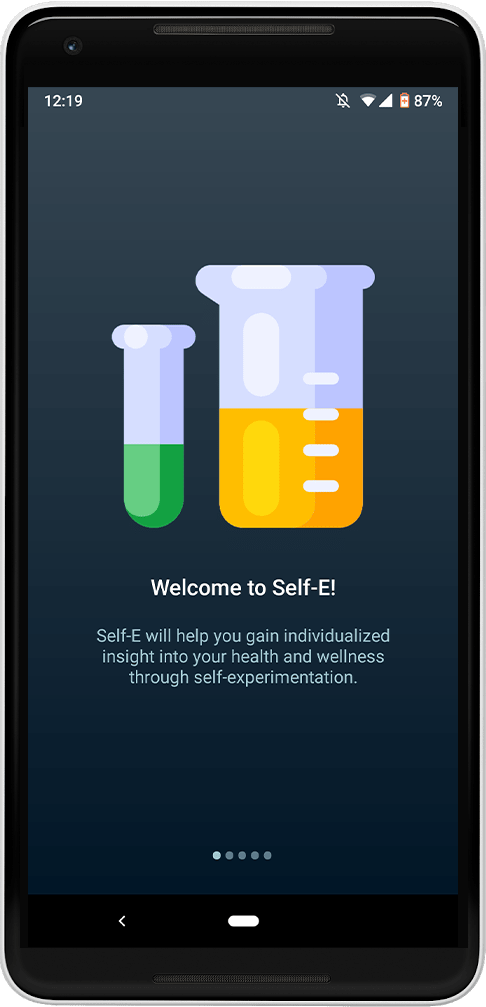How it works
Self-E lets you run small experiments on yourself, which may help you optimize various aspects of your well-being.








Let Self-E randomize what you do each day, and compute the resulting probability and effect sizes for you. Backed by our research of bayesian statistics for N-of-1 trials.
Read our previous papers for details:










